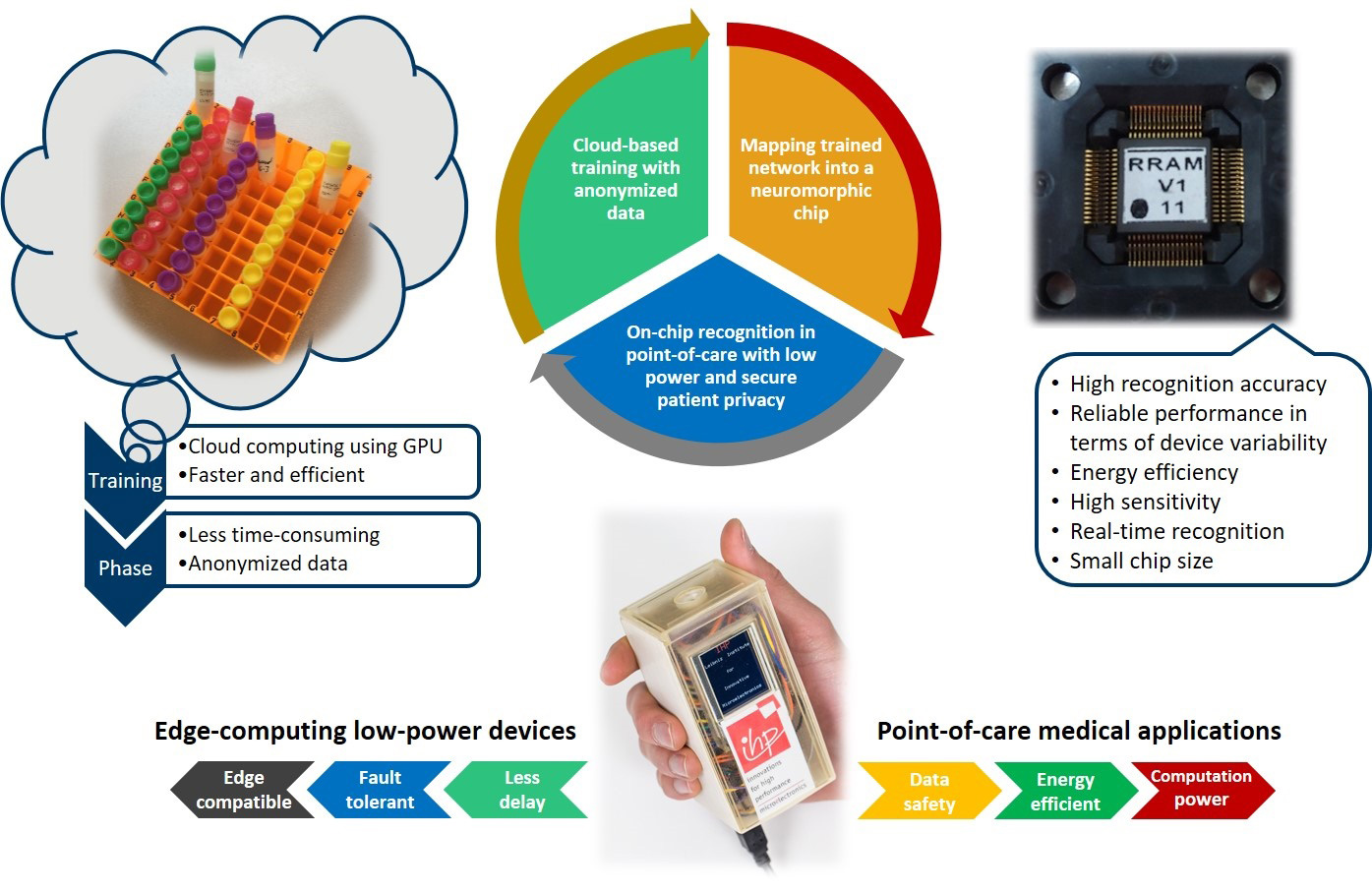Chronic diseases can have dramatic impacts on patients’ life. The earlier such illnesses are detected, the better are often the possibilities to react medically.
The research team led by Prof. Dr. Christian Wenger at the Leibniz institute - Innovations for High Performance Microelectronics (IHP), together with the Nanoelectronics group of the University of Kiel and the Research Center Borstel, is working on a novel early warning system for the early identification of lung diseases, especially chronic obstructive pulmonary disease (COPD).
In their new article "Neuromorphic on-chip recognition of saliva samples of COPD and healthy controls using memristive devices", published by IHP’s young scientist Pouya Soltani Zarrin, they present how neuromorphic chips of IHP can be used to apply artificial intelligence methods on a hardware platform for data analysis and medical diagnosis.
This new technique is used for the diagnosis of lung diseases such as COPD. The biosensor device equipped with a microchip, developed at IHP, enables measurements by analyzing saliva samples. Thus, the device may in the future be able to characterize saliva for the identification of lung infections such as COPD in a near-a-patient environment.
In addition, an in-house fabricated neuromorphic platform allows the device to use AI techniques to analyze results without requiring an internet connection. The data collected on the device no longer needs to be forwarded to centralized servers for processing and are thus better protected against unauthorized access and data scandals.
Pouya Soltani Zarrin received the master’s degree in biomedical engineering from the Western University in Canada. Since 2017, he has been with the Leibniz-Institute for Innovative Microelectronics (IHP), where he is currently working as a Research Scientist on medical device development and AI integration for precision diagnostics. He has expertise in the design, development, and testing of medical mechatronic systems and biosensors and implementation of machine learning techniques for medical analytics. His research interests include medical device design, sensing systems, AI, machine learning for healthcare, and medical mechatronics and robotics.



